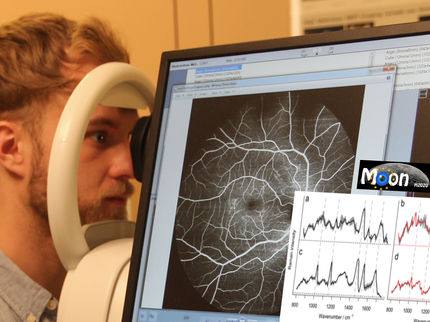Study reveals new link between Alzheimer’s disease and healthy aging
Alzheimer's disease and frontotemporal lobar degeneration (FTLD) are two of the most prevalent forms of neurodegenerative disorders. In a study published online in Genome Research, researchers have analyzed changes in gene expression in the aging and diseased brain, finding new clues to the biology of normal aging and neurodegenerative diseases.
Recent studies have identified changes in how genes are read, or expressed, in the brain either during aging or with neurodegenerative disease. However, no previous study had directly compared gene expression changes in healthy aging with those in diseased individuals.
In this report, an international team of researchers analyzed and compared changes in gene expression associated with aging and disease in a region of the brain known to be affected in both Alzheimer's and FTLD. Comparing samples from healthy individuals ranging from 16 to 102 years old with samples from diseased individuals, the investigation uncovered striking similarity in the changes in gene expression patterns associated with aging and the neurodegenerative diseases.
“Surprisingly, these [diseased] samples contained the same aging-related changes as healthy individuals over the age of 80,” said Dr. Jernej Ule of the MRC Laboratory of Molecular Biology, senior author of the study.
“Aging-related changes were apparent in the diseased individuals as young as 50 years,” noted Dr. James Tollervey of the MRC Laboratory of Molecular Biology, the first author of the study, “roughly 25 years before we would expect to see similar changes in healthy individuals.”
While the similarities were striking, the group also observed notable differences between gene expression in the normal aging brain and expression in Alzheimer’s and FTLD, particularly in the patterns of alternative splicing, a process by which parts of a RNA molecule are arranged differently to change the message, which can be potentially harmful if misregulated.
In normal aging, changes in alternative splicing largely affected genes associated with cellular metabolism, while disease-specific changes were associated with genes involved in neuron-specific function. The group found that there were changes in the expression of several genes coding for RNA binding proteins, which is likely responsible for at least part of the observed alterations in splicing.
The authors expect that this work will have broad impact for further insight into both normal aging and neurodegenerative disease. “These findings indicate that studies of healthy aging could help unravel the processes that lead to neurodegeneration,” said Ule.
“Conversely, our findings also indicate that studies of neurodegenerative diseases might help us understand how to delay the changes that take place in healthy individuals at an advanced age,” added Dr. Boris Rogelj of the MRC Centre for Neurodegeneration Research at King’s College London, a co-author of the study.
Original publication
Most read news
Original publication
Tollervey JR, Wang Z, Hortobágyi T, Witten JT, Zarnack K, Kayikci M, Clark TA, Schweitzer AC, Rot G, Curk T, Zupan B, Rogelj B, Shaw CE, Ule J. Analysis of alternative splicing associated with aging and neurodegeneration in the human brain. Genome Research 2011
Topics
Organizations
Other news from the department science

Get the life science industry in your inbox
By submitting this form you agree that LUMITOS AG will send you the newsletter(s) selected above by email. Your data will not be passed on to third parties. Your data will be stored and processed in accordance with our data protection regulations. LUMITOS may contact you by email for the purpose of advertising or market and opinion surveys. You can revoke your consent at any time without giving reasons to LUMITOS AG, Ernst-Augustin-Str. 2, 12489 Berlin, Germany or by e-mail at revoke@lumitos.com with effect for the future. In addition, each email contains a link to unsubscribe from the corresponding newsletter.





















































